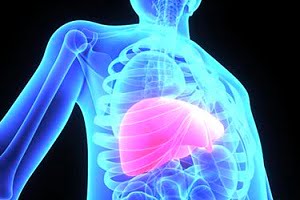What Are the Causes of Cirrhosis of Liver?
- Updated on: Oct 15, 2024
- 3 min Read
- Published on Oct 2, 2019

Causes of Liver Failure: What Causes Liver Cirrhosis?
Cirrhosis, a chronic disease is caused mainly by long-term disease or injury to the liver. The process is gradual and it does take time to reach severe condition like cirrhosis.
Following are the reasons that lead to cirrhosis:
- Alcoholism
- Viral Hepatitis
- Non-alcoholic steatohepatitis (NASH)
- Bile Duct conditions
- Genetic diseases
- Autoimmune hepatitis
- Budd-Chiari syndrome
Alcoholism
Chronic alcoholism is the leading cause of cirrhosis all over the world. Drinking excessive amount of alcohol can cause swelling of the liver and liver enlargement. Ultimately, this leads to cirrhosis. The amount of alcohol that causes cirrhosis can be different for different people.

The main function of liver is to break down various toxins and alcohol. When the amount of alcohol is too high, the liver is overloaded. This causes damage to the liver cells.
Types of Alcohol-induced cirrhosis
Alcohol-induced cirrhosis is further categorized into three stages:
- fatty liver (build-up of fat in the liver)
- alcoholic hepatitis (swelling of liver cells)
- cirrhosis (development of scar tissue in the liver)
According to a study, about 35% of heavy drinkers develop alcoholic hepatitis while approximately 10% of them develop cirrhosis.
Giving up alcohol can help to slow the progression of liver cirrhosis. Treatment for addiction is often necessary to help people who have developed this condition to quit – continuing to drink will only speed up the damage and shorten a person’s lifespan.
Viral Hepatitis
Hepatitis C, a blood-borne infection, is the second major cause of cirrhosis worldwide. About one-fourth of people suffering from chronic hepatitis C develop cirrhosis. It is caused by heavy alcohol consumption and prolonged usage of certain medicines and drugs. The disease causes swelling of the liver and with time, it damages the liver. Eventually, the condition leads to cirrhosis.
Following are the reasons of getting this viral condition:
- accidental pricking with a needle
- sharing injection needles
- sharing needles for injecting drugs
- blood transformation (without checking for infection)
- unprotected sex with someone already suffering from it
In addition to Hepatitis C, hepatitis B and D also cause cirrhosis.
Non-alcoholic steatohepatitis (NASH)
Deposition of fat in the liver can be because of many other reasons like Non-Alcoholic Steatohepatitis (NASH). This causes swelling and damage to the liver cells.
Following are the main reasons for fat buildup in the liver:
- overweight and obesity
- high cholesterol and triglycerides
- high blood pressure
- diabetes
Generally, people with bad eating habits have NASH. Along with cirrhosis, there are other complications associated with it like diabetes, coronary artery disease, high cholesterol and obesity.
Bile Duct conditions
Bile is a fluid that helps in digestion while bile ducts are small tube-like structures that carry it from liver to small intestine. Any condition that limits or stops the flow of bile to the small intestines can create a problem.
Following are the main conditions that limit the flow of bile into small intestine:
- primary sclerosing cholangitis (hardening and scarring of the bile ducts)
- biliary atresia (badly formed bile ducts in babies)
- cancer of bile duct (overgrowth of cells in ducts causing the blockage)
- gallstones and cystic fibrosis (bile duct damage)
- pancreatic cancer (blockage of bile ducts)
As a result, the bile accumulates in the liver causing swelling and leading to cirrhosis.
Genetic diseases
In addition to alcohol and obesity, genetic diseases can also be the reason for developing cirrhosis. Following are the commonly reported diseases that are linked with cirrhosis:
- Hemochromatosis (accumulation of iron in the liver and other parts of body)
- Wilson’s diseases (accumulation of copper in the liver and other parts of the body)
Autoimmune hepatitis
The condition is an autoimmune disorder that is caused due to abnormal functioning of immune system. The immune system attacks its own healthy cells in the body, as it cannot differentiate between foreign cells and body cells. Sometimes liver is attacked and patients develop cirrhosis.
Budd-Chiari syndrome
This syndrome is categorized with thrombosis in hepatic veins. This means clot formation (thrombosis) takes place in liver veins that carry blood from the liver. Ultimately, this leads to enlargement of liver and cirrhosis.
In addition to above-discussed causes, there are other reasons that lead to liver cirrhosis like:
- galactosemia (genetic disorder that affects ability to metabolize sugar)
- glycogen storage disease (inborn error of glycogen storage)
- hepatoxic drugs and toxins (toxins that damage liver)












